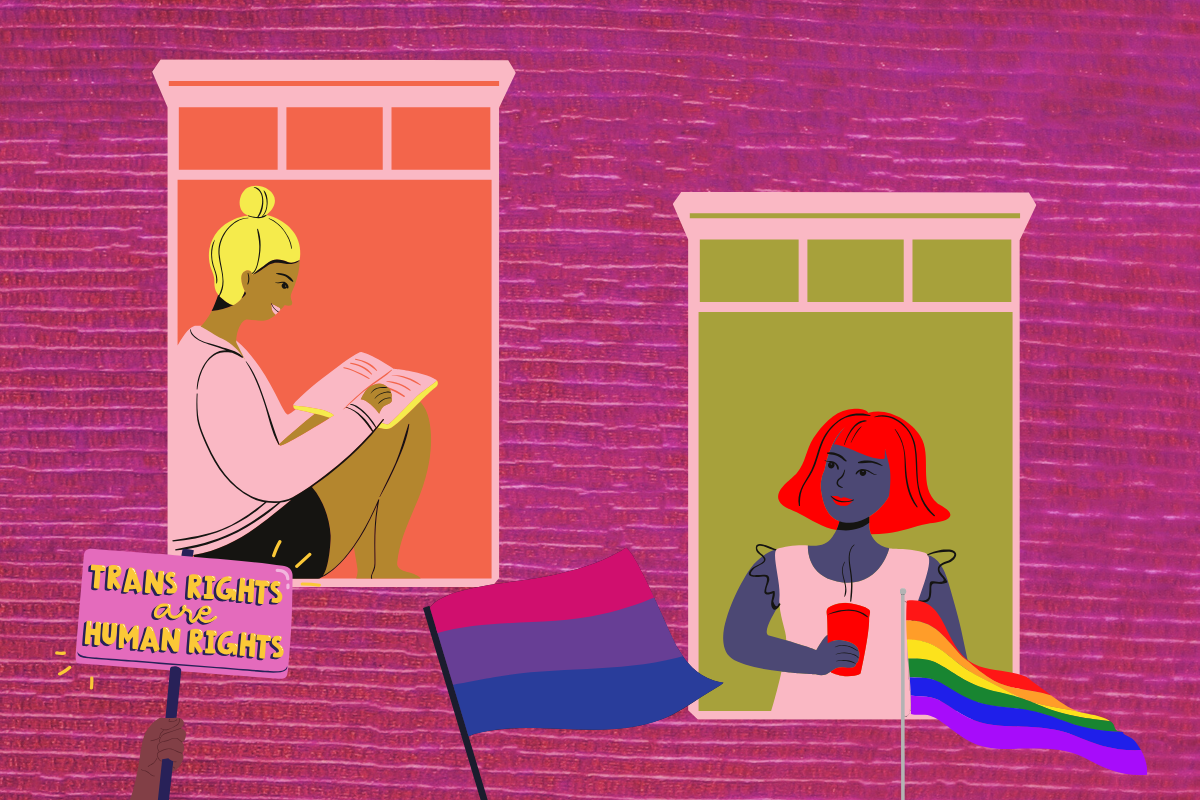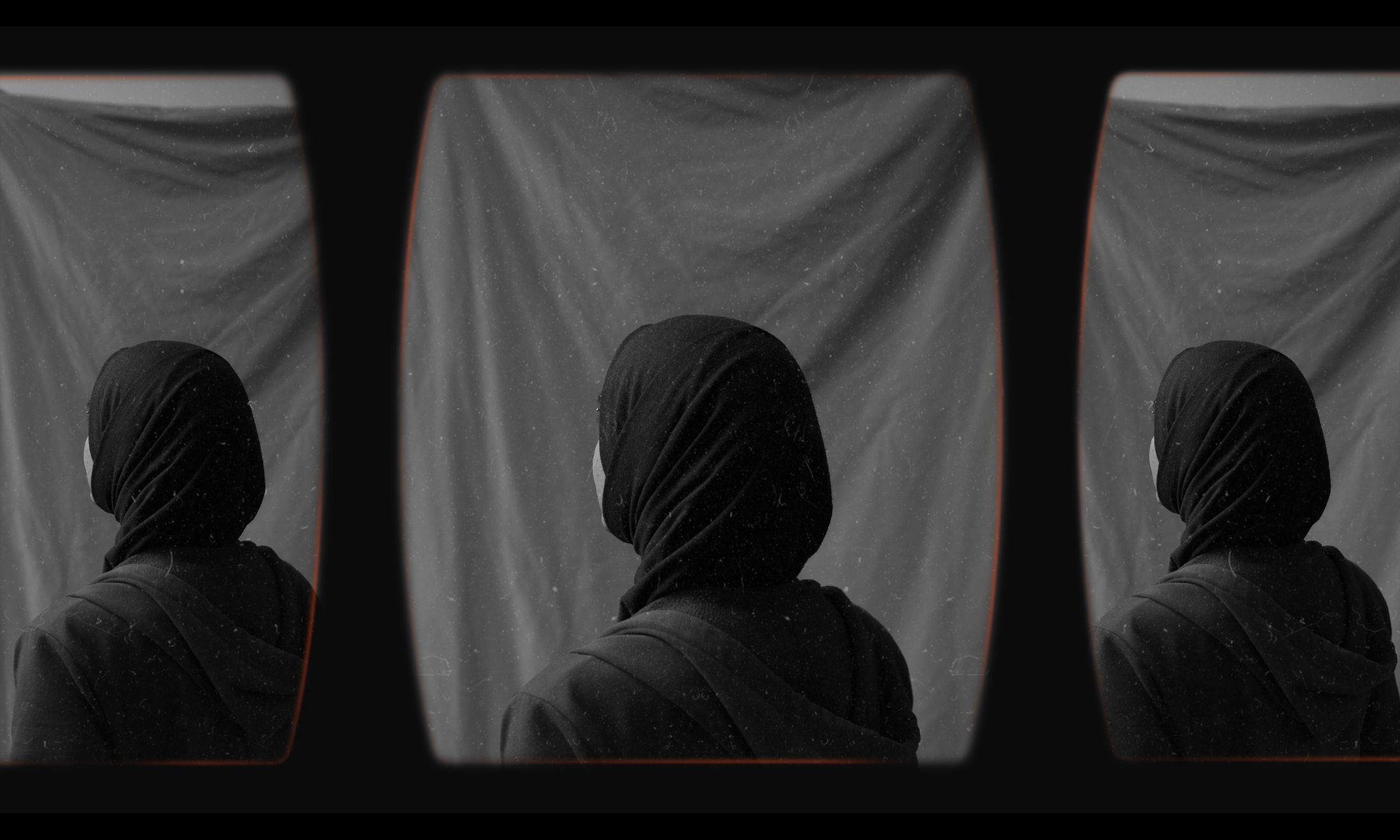
5 ways I’ve been celebrating Pride in lockdown
From watching queer film and TV to cooking up a storm, there's more than one way to celebrate Pride this year.
Leah Cowan
27 Jun 2020
Queer people are great at yearning. We invented it. It’s a key emotion on the QTIPOC feelings wheel, nestled gently between longing and angst. Over the centuries, and in the context of ongoing oppression, we have deployed the ability to yearn well as a protective strategy. It enables us to quietly love and lust across violent social and legal barriers, the majority of which were constructed by Britain as part of the colonial project.
So despite the fact that many of us have been yearning to spend time with (or find) our communities during Pride month in particular – celebrating Pride in lockdown is something we have the perfect ancestral skills for. In short: we’ve got this. We survive the QTIPOC who came before us because of their ability to be their authentic selves in different ways, and for many of us who can’t be “out”, we have an opportunity to take private solace in Pride however we choose to mark it.
Lockdown presents new and various challenges for us. Stonewall has reported that during the pandemic, “For some lesbian, gay, bi and trans people, the risks of homelessness, insecure employment, restricted access to healthcare and other inequalities deepen”. Similarly, Transgender Europe anticipates that trans people are being impacted by the pandemic along many axes, including literally being at risk of the virus, as well as facing barriers to healthcare, and being disproportionately impacted by the socioeconomic fallout of the crisis. Lockdown has also presented new homelife and interpersonal dynamics* for many QTIPOC people: not being able to talk openly about our thoughts, feelings and perspectives or to dress or present how we choose can feel disorientating and contribute to feelings of dissonance and dysphoria – with 37% of trans PoC unable to access medication at this time. Resources such as those compiled by Mermaids, GenderGP and Gendered Intelligence and the LGBT Foundation are of critical importance.
This Pride, we can also be proud of caring for ourselves and each other through turning and returning to the huge (albeit often hidden) wealth of queer film, literature, music, TV and more – all of which can be accessed from the relative safety of your own phone (if needed, make sure to erase your internet history or use a VPN). Whatever you’ve ended up doing this month, know that you are part of queer history in the making, because to paraphrase Janet Mock: telling our stories, even if just to ourselves, is a revolutionary act.
1. Queers on film
Grab your snack of choice and delve into the wonderful world of QTIPOC cinema! The Watermelon Woman (1996) is a film about film, following Cheryl, a young black lesbian who works in a video store while trying to make her own documentary about a black actress who played stereotypical “mammy” roles in the 1930s. Rafiki (2018) is a heart-swelling, pastel-coloured yarn which chronicles a relationship developing between Kena and Ziki, two young queers loving and lusting despite the limitations of their conservative neighbourhood in Nairobi. Paris is Burning (1990) is a prize-winning documentary which explores drag balls in New York in the 1980s, and the QTIPOC communities that they grew out of. It’s worth noting that the film – which explores the glittering, magical but very real QTIBPOC who experienced intense hardship and destitution and found community in the drag ball scene – has been the focus of critique over the years. Netflix’s Disclosure is also a new documentary about the history of trans people in film and TV.
2. Get lost in a book
Escaping into the pages of a book was my teenage respite from the trials and tribulations of growing up. Some of my favourite titles include: Under the Udala Trees by Chinelo Okparanta, a hard-hitting story about a romance between two young girls in war-torn Nigeria; Queer: A Graphic History by Meg-John Barker and Julia Scheele, which gives a digestible 101 of queer theory from early sexologists to the present-day intricacies of being queer, The Black Flamingo by Dean Atta, a coming-of-age story in which the protagonist encounters and navigates the oppressive boxes and binaries built by heteropatriarchy, and Flèche by Mary Jean Chan, a poetry collection exploring queerness, family, and the duality of being from Hong Kong and living in the UK. If it doesn’t feel safe to have physical copies lying around, you could alternatively access titles as eBooks or audiobooks.
3. Bake it to make it
Apparently baking is a queer act, and I’m on board. This Pride, one thing we can control is what we eat: why not try making one of gal-dem’s lockdown recipes? You can find recipes for bakes, cakes, desserts and more from the nation’s favourite queer food writing icon Ruby Tandoh here, Samin Nosrat’s 10 essential Persian recipes here, six great recipes from Top Chef winner Kristen Kish here, and recipes from Ceyenne Doroshow’s Southern kitchen with a Caribbean twist in her cookbook Cooking in Heels. Eric Kim’s beautiful essay on their “coming out meal” of kimchi fried rice is an inspiration for us all, but if you’re stuck in lockdown with people who you can’t or don’t want to celebrate Pride with (or even be out to), you can still cook a coming out meal for yourself.
4. Reduce, reuse, upcycle
Since we all learnt in a 2019 report that men aren’t recycling because they think it looks gay, I’ve taken a real shine to the idea. Recycling doesn’t just have to stop at separating your cereal boxes from your food waste. This Pride why not upcycle old garments or fabrics into new items (last month, Mariel clued us in to the world of sewers sharing handy hints and tips on Instagram), or repurpose household items as plant pots, and bring some greenery into your lockdown landscape? We can learn a lot from plants who face front and photosynthesise in these trying times, as gardening club founder Aimée Grant Cumberbatch explains on gal-dem: “There are even personal lessons we can gain from looking after plants. They take up the space they need to survive, they move towards the light”.
5. Turning inwards
We are currently living through a racist pandemic, and in an era of (perhaps temporary) heightened awareness of racial injustice. As QTIPOC who have never experienced the privilege of coming fresh and new to the concept of racism, this brings a whole host of intensified stresses to our door that we’ve been dealing with, in different forms, our whole lives. If and where we can, taking a moment to pause, breathe and reflect can be useful for relaxing clenched muscles (are you tensing your jaw, tongue, and eyebrows right now? I always am!). On a recent episode of The Secret Lives of Black Women podcast, spiritual guide Ayanna Maia shared her daily 15-minute meditation practice: five minutes of breathing and focusing on breath, five minutes of focusing on one thing we want and letting ourselves “have it” and deserve it, and five minutes of journaling about a goal or something we’re working on.
This month you could also try building an “altar” in your room: a spot towards which you can focus meditation, rituals, prayer, or any type of reflection or gratitude, which can be as small or big as you like. Many people choose to use sounds or scents to cleanse the altar space (such as clapping, singing, or lighting incense), and then group together meaningful objects such as images of people who nurture and inspire us with wisdom, items from the natural world such as crystals, shells, water and dried flowers, and candles and essentials to keep us focused and grounded.
However you have spent Pride month, know that you are enough. This month rolls around every year, with is bells and whistles and smattering of corporate well-wishes, but we’re queer all year round, and a few rainbow lanyards aren’t making meaningful improvements to our lives. We will continue fighting the huge structures of oppression that seek to make our lives untenable – from the hostile environment in the UK, to British-enacted homophobic laws globally. Resistance and community is the key as we keep towards a different world: Pride started with a riot, but it didn’t end with a flag. Because of this, taking care of ourselves and each other is of utmost importance; this Pride, refuel yourself for the journey onwards.
*If you are experiencing controlling, coercive or abuse behaviour in your home, you can contact LGBT+ anti-violence charity Galop or the National LGBT+ Domestic Abuse helpline on 0800 999 5428







